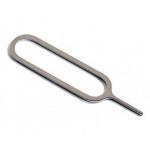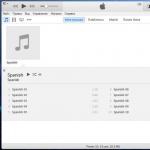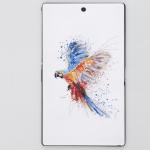Mistake countable or uncountable. Count and non-count nouns (Count and Noncount Nouns) in English (plural, articles, quantitative designations)
We can all count. But does everything count? For example, how to calculate the weather? Or water, or money? “Well, we can count money!” many will object. Okay, let's count: one money, two money, three ... Is something wrong? But we can perfectly count rubles, dollars or euros. Why this conversation? Yes, to the fact that we will talk about countable and uncountable nouns in English.
Why is it important
The fact is that in English there are grammatical differences when using countable and uncountable. This concerns the agreement of the subject with the predicate, education, use, use of indefinite pronouns.
How to define countability
Everything is simple here: you need to calculate. If it turns out, then the noun is countable. If not, it's uncountable. We have already counted the money, let's count something else. For example, milk. Try saying: I have five milk. Immediately the question arises: what five? Liters? Glasses? Cans? So milk is an uncountable noun, and a liter, a glass or a can is a countable one. We can count hours, days, seconds, but we cannot count time. So time is an uncountable noun, and days and hours are countable. Using this principle, you can easily determine which noun is countable and which is not.
countable nouns
Countables include specific objects, objects, people, animals, which we perceive as separate units:
doll - doll
girl - girl
tree - tree
cat - cat
pencil - pencil
Some abstract concepts that can be counted can also be countable:
word - word
desire - desire
idea - idea
decision
order - order
You can always put a number in front of them:
four cats - four cats
two decisions - two decisions
Uncountable nouns
Uncountable substances include any substances: liquid, solid, gaseous, in the form of a powder. We also include abstract concepts, feelings, emotions, natural phenomena, various sciences and academic subjects, sports, etc. That is, everything that cannot be divided into separate units, and, therefore, counted:
peace - peace
gold - gold
time - time
kindness - kindness
love - love
Features of some nouns
Take, for example, nouns such as coffee (coffee), tea (tea), beer (beer). These are liquids, they cannot be counted and we refer them to uncountable nouns:
I don't like coffee, I prefer tea.
I dont like coffee, I prefer tea.
But here's another example:
Give us two coffees and a tea, please.
give us two coffee and tea, please.
As you can see, seemingly uncountable liquids have turned into countable ones. Since in this case we are not interested in abstract coffee and tea, but in a specific volume (cup, serving). We mean it, though we don't say it.
More examples
Here are some more examples where the same noun can have two categories. In this case, the semantic meaning of the word may change. Compare:
The statue is made of stone.
The statue is made from stone.
There are two beautiful stones in the girl's pocket.
The girl has (has) two beautiful pebble.
In the first case, the stone is the substance from which the statue is made, so the noun is uncountable. In the second case, a stone is an object that can be counted.
The bridge was not sturdy because it was made out of wood.
The bridge was not strong because it was made of tree.
This wood is huge.
This forest(woodland) is huge.
Forest is like wood, material is an uncountable noun. And the forest as a specific area, the forest area can already be counted.
The sun gives us light and heat.
The sun gives us light and warm.
The light in the room was dim.
Light(lamp, bulb) in the room was dim.
In the first case, the word "light" is used as an abstract concept, in the second case, it refers to a specific light source, which can be several (two light bulbs).
Michael has extensive experience in medicine.
Michael has a big experience in medicine.
When we went to Moscow, we had some interesting experiences.
When we went to Moscow, we had several interesting adventure(experiences).
In the first sentence, experience is an abstract, uncountable concept; in the second, it is specific interesting moments from life that can be counted.
Thus, depending on the meaning, the same noun can be countable or uncountable. How to determine? The old proven way: count.
Differences in languages
advice - advice
work - work
news - news
baggage - baggage
knowledge - knowledge
information - information, message
progress - progress, success
hair - hair
However, there are pitfalls here as well. For example, the word hair is uncountable; in English, hair cannot be counted. But there is a noun a hair, which translates as "hair" and refers to the countable:
There are two hairs on your dress.
Here (there are) two hair on your dress.
Let's move on to grammar
We have learned how to determine the countability of English nouns, now let's see where it can come in handy. The fact is that there are very important grammatical differences in the use of countable and uncountable nouns.
- English nouns change in number and can be either singular or plural. But this only applies to countable nouns. All uncountable nouns are used only in the singular. Don't try to pluralize them, that would be a mistake. In a sentence, uncountable nouns agree with the singular verb and can be replaced by the pronoun it:
This advice is very useful.
This advice very helpful.
water freezes at a temperature of zero degrees.
Water freezes at zero degrees.
I want to remind you that the word news also refers to uncountable, therefore, despite the ending - s, it is a noun in the singular:
no news is good news.
Absence news- good news.
- I think you know that nouns are used with articles, which can be and .
Both articles are used with countable nouns:
There is a big tree in the yard.
In the yard there is a large wood.
The tree is very old.
Wood very old.
The indefinite article cannot be used with uncountable nouns. This is explained simply: the indefinite article a / an comes from the English word one, which means "one". Since uncountable nouns cannot be counted, the article a/an cannot be used either. These nouns are either preceded by a definite article or no article at all:
water is very important for life on the Earth.
Water very important for life on the ground.
The water in the stream is cold and clean.
Water the stream is cold and clear.
- With the indefinite pronouns some and any, both countable and uncountable nouns can be used. However, countable nouns in this case must be in the plural:
I have some friends in Brazil.
I have some friends in Brazil.
He took some money and went to the store.
He took money (some money) and went to the store.
- The use of nouns with the pronouns much, many, little, few also has its own rules.
- The pronouns many (many), how many (how many, how many), (a) few (few, few) can only be used with countable nouns:
He doesn't usually ask many questions.
He usually does not ask many questions.
There are a few flowers in the garden.
The garden has some flowers.
- The pronouns much (many), how much (how much, how much), (a) little (little, a little) are used only with uncountable nouns:
how much time do you usually spend on this kind of work?
What time is it do you usually spend on this kind of work?
There is a little milk in the cup.
There is in the cup some milk.
- The expression a lot of (a lot) is used with any nouns:
There are a lot of cars in the yard.
In the yard a lot of cars.
There is a lot of water in the glass.
In glass plenty of water.
Knowing the grammatical features of countable and uncountable nouns will help you avoid many mistakes. But theory without practice is quickly forgotten. Channel "English - speak freely!" will give you the opportunity to practice your English at any time of the day. See you on the air!
Can everything be counted? Is it possible to count the stars in the Universe or the water in the seas and oceans? And if the stars of the hotel and water in a glass - is it possible to count these objects? What am I talking about - we're talking about English. The fact is that in English, the ability or impossibility to count some objects, as it turns out, affects grammar. A noun in English can be either countable or uncountable (countable and uncountable).
How to define countability? Count!
To determine whether a noun is countable or not, you need to do a simple thing - try to count. In most cases, this will solve the problems at once: two bottles, three friends, four cucumbers. And if it turns out some kind of nonsense, then the noun is uncountable.
It would seem that the issue can be closed. Not really. The first problem that you may encounter here is to carefully look at what exactly you think, do not fall into a logical trap.
For example: is vodka countable? Ha, you say, but what about: vodka can be 0.5, maybe 150 - why not calculations. But no, in this case we count liters and milliliters (or grams - as someone is used to), and “one vodka, two vodkas” sounds strange. It turns out that vodka is an uncountable noun, (and a liter is a countable one).
Countable nouns - those nouns that can be counted piece by piece (two cups, three books, a thousand people). Uncountable nouns can have both singular and plural. one cup - one cup, five cups - five cups.
Uncountable- nouns that cannot be counted (water, love, money). That is, these are those nouns that cannot be preceded by a number indicating their number. For example, you cannot say: five loves, eight waters, ten money. The most common uncountable nouns are abstract concepts, bulk substances and liquids. Uncountable nouns have only the singular form, even if they are translated into Russian in the plural. For example: money - money, hair - hair.
Rules for the use of phrases with countable and uncountable nouns
| countable nouns |
Not countable nouns |
| Many
- lot |
Much
- lot |
|
Much and many are translated as "a lot", but much is only used with uncountable nouns, and many is only used with countable nouns.. Much and many can be used only in interrogative and negative sentences. For affirmative sentences, "a lot of" is used.
The question "how much? how much?" in English is given in different ways: for uncountable - how much? for countable - how many? (It is impossible to say how a lot of?) |
|
|
A lot of - lot In affirmative sentences, to say "a lot" the phrase " a lot of" (lots of). It is used with both countable and uncountable nouns. It can also be used in interrogative and negative sentences instead of the words much and many.
|
|
|
a few - Little I have a few books - I have a few books (a few books) |
a little - Little I have a little time - I have a little time |
|
few - few I have few books - I have few books |
little - few I have little time - I have little time |
Countable nouns (“to be counted”) are words denoting the names of specific objects and abstract concepts that can be counted. And since they can be counted, they are used both in the singular and in the plural. Here examples of countable nouns: table, picture, hour, holiday, offer, boy, decision, way-out, etc.
By using such words in the singular, you can precede them with the indefinite article a / an: a table, a picture, an hour, an offer, a boy, a decision, a way-out. Moreover, a countable noun in the singular must always be accompanied by some determiner. If there is no indefinite article, either a definite article (the) or a possessive pronoun (my, his, our, etc.), a demonstrative pronoun (that, this) is needed. Let me remind you that a determinative is a linguistic indicator with a noun, expressing the meaning of certainty. For example:
I saw a boy.
This picture is a masterpiece.
I approve of the decision you've made.
I broke my leg.
With countable nouns in plural we can use the indefinite pronouns some (any, many, few, many):
Some friends of mine will come to this party. Several of my friends will come to the party. (Some of my friends will come to the party).
In contrast to the previous uncountable nouns(“non-calculable”) are the names of substances, abstract concepts that cannot be counted. And, therefore, they are used only in the singular.
Examples: knowledge, silver, music, milk, water, happiness, furniture, advice, etc. These nouns cannot be used with the indefinite articles a / an, but they can be combined with the other determinants mentioned above (definite article, possessive, demonstrative pronoun).
They are also used with some indefinite pronouns: some, any, much, little. For example:
These ear-rings are made of silver.
I have some news for you.
I don't like the music you are listening to now.
Her beauty attracts me.
However, there are cases in which the use of an uncountable noun with the indefinite article a/an is allowed, as well as with numerals (one/two, etc.). This can be done when ordering food in a restaurant, cafe:
We'll have four coffees, please. We have four coffees.
Uncountable nouns include
- various edible products (meat, flour, milk, salt, etc.),
- liquids (petrol, coffee, etc.),
- substances and materials (gold, wood, glass, etc.),
- abstract concepts (help, education, etc.)
- and many other words (advice, weather, hair, etc.).
What if we need to use such a word in speech? how transfer any amount? Certain words serve this purpose: a piece of advice, a bowl of fruit, a carton of milk, a bar of chocolate, a glass of wine. ), a can of Coke (a can of Coca-Cola), a tube of paint (a tube of paint), a kilo of meat (a kilogram of meat), a cup of tea (a cup of tea), a loaf of bread (a loaf of bread), a rasher of bacon (thin slice of bacon).
If we are talking about material nouns, then we remember that there are nouns that denote not the substance itself, but the object that consists of this substance. Such a noun will already be countable. For example:
Their house is built of local stone. Their house is built from local stone. (uncountable noun)
I have a stone in my shoe. - I have a stone in my shoe. (countable noun)
In yet another way, real nouns can become countable: when they convey different sorts or kinds of a substance.
There is a live coal in the fire-place. - There is a burning coal in the fireplace.
You can read about four tips in choosing and using various body oils. - You can read four tips on how to choose and use different body oils.
What is the difficulty in understanding the principle of "computability-incomputability"? But the fact is that some nouns in English are uncountable, and in Russian or other languages, on the contrary, they are countable. Among them are the following words: baggage, bread, information, furniture, traffic, work, progress, accommodation, cash, clothing, cutlery, equipment, health, luck, money, photography, research, safety, sunshine, underwear, violence, etc.
Ports are open to internal passenger traffic. – Ports are open for international passenger traffic.
A change of underwear must be done at least once a day. - Change your underwear at least once a day.
The hotel checked our baggage. The hotel took our luggage for storage.
And there are nouns that can be used both as countable and as uncountable. But in this case, we will observe a difference in meaning. For example:
I ate three apples. - I ate three apples. (countable)
Is there an apple in this salad? Is there an apple in this salad? (uncountable)
Would you like a glass of lemonade? How about a glass of lemonade? (countable)
This sculpture was made of glass. This sculpture is made of glass. (uncountable)
I'm pressed for time. “I don't have time at all.
How many times did you read this article? How many times have you read this article?





